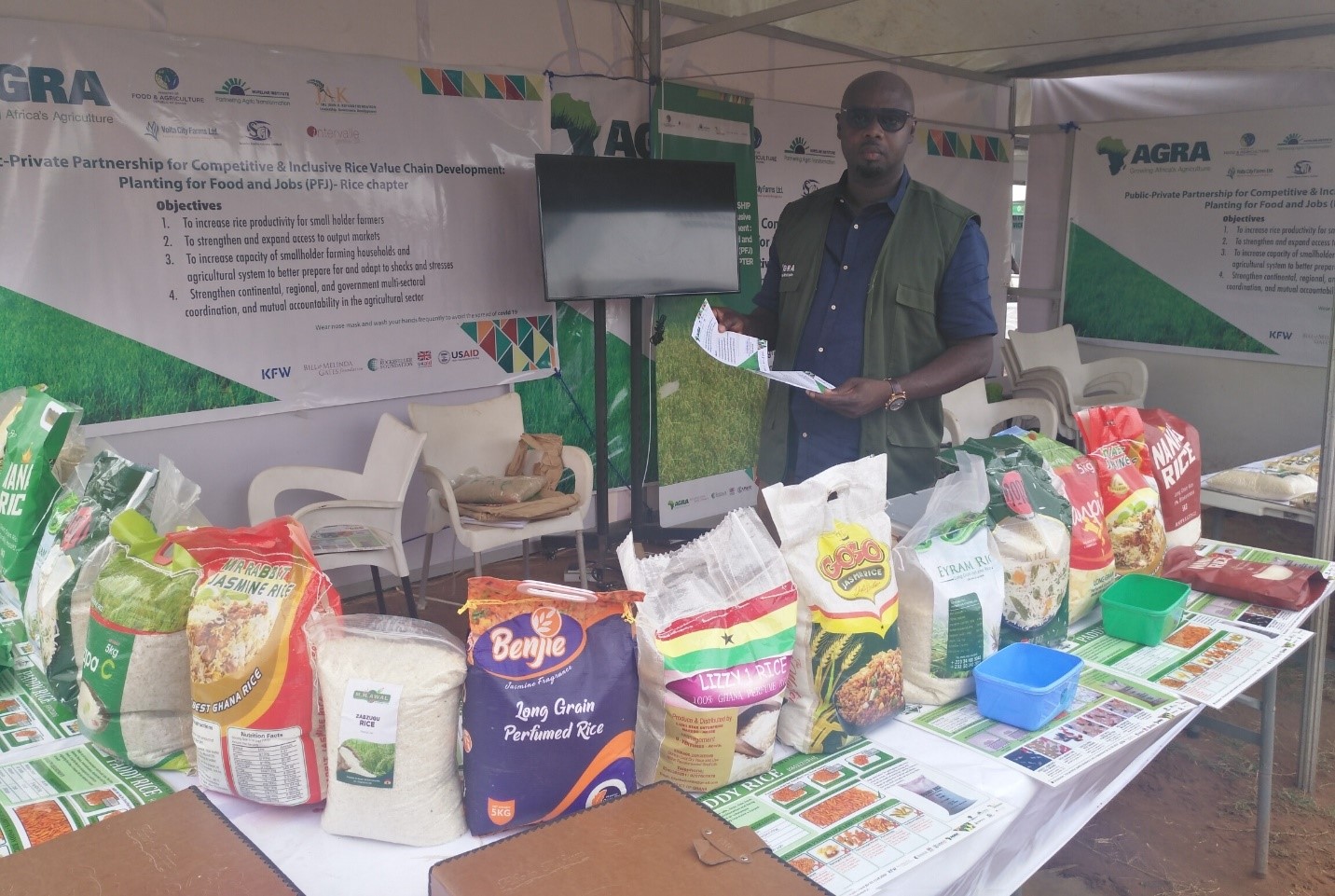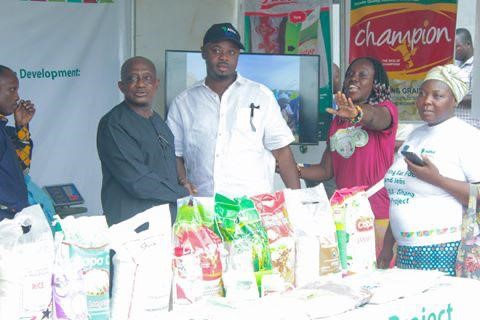About 90,000 small-scale rice farmers across the 16 regions in the country have received diverse support to boost rice production in order to make the country self-sufficient producer of the staple food in the next few years.
The support to the farmers is part of the implementation of a three-year (2018-2021) project dubbed “The public-private partnership for competitive and inclusive rice value chain development project.” All other things being, a total of 128,764 farmers are expected to benefit by the end of the project.
The rice project is an initiative of the Alliance for a Green Revolution in Africa (AGRA) and a consortium in charge of its implementation. The implementing partners include Ministry of Food and Agriculture, Hopline Institute, Intervalle, John Agyekum Kufour Foundation, Sparkx Investment Ltd., and Volta City Farms among others.
The project is aimed at increasing farmers’ productivity and incomes, strengthen and expand access to output markets, boost the capacity of agricultural systems to better prepare for and adapt to shocks and stress. It is also meant to fortify continental, regional and government multi-sectorial coordination.
In an interview with the B&FT, Ebow Graham, officer in charge of Projects/Country Engagement and Operations –Hopeline Institute (lead farmer mobilization and private extension front) said farmers are being supplied with quality and improved certified seeds while many value chain actors have also been reached, all in the interest of making the country rice self-sufficiency.

“It is not just about supply of improved seeds and fertilizers, it’s a full package for the value chain actors to make sure that they are sustained throughout the period of their business. The consortium is also targeting different milling companies to enhance rice milling and availability. The strategy is that government has asked importers to source 30 percent in country before they receive permit to bring in the extra 70 percent. By the end of the project we’ll hit about 70 percent rice self-sufficiency,” he said.
He appealed for more support, especially private sector investment to further transform rice production in the country. “We need more investment, particularly in the area of mechanization-land preparation and development to accelerate production. Now the farmers are well trained so we need the technology to move on.”
Mr. Graham was speaking to on the sidelines of a week-long agriculture fair at Techiman, Bono East capital. The fair is a prelude to the National Farmers’ Day celebration coming off Friday November 6, 2020. The theme for the celebration is “Ensuring Agricultural Development under COVID-19; Challenges and opportunities.”
Local rice quality & consumption
Responding to concerns about the local rice quality and packaging, he stated that there has been massive improvement in the production and packaging of local rice. “We have been able to improve the standard of rice business in the country by training the millers well and providing them good disstoner machines. They have been taken through standards in sourcing paddy, milling and introduce them to technologies like moisture metres as well as collaborating with the Ghana Standards Authority, and Food and Drugs Authority to meet international standards.”
He urged the public to patronise local rice for healthy living and as a way of supporting local economic growth and development, saying, “locally produced rice is very nutritious and not old. They have good quality, taste and fragrance.










